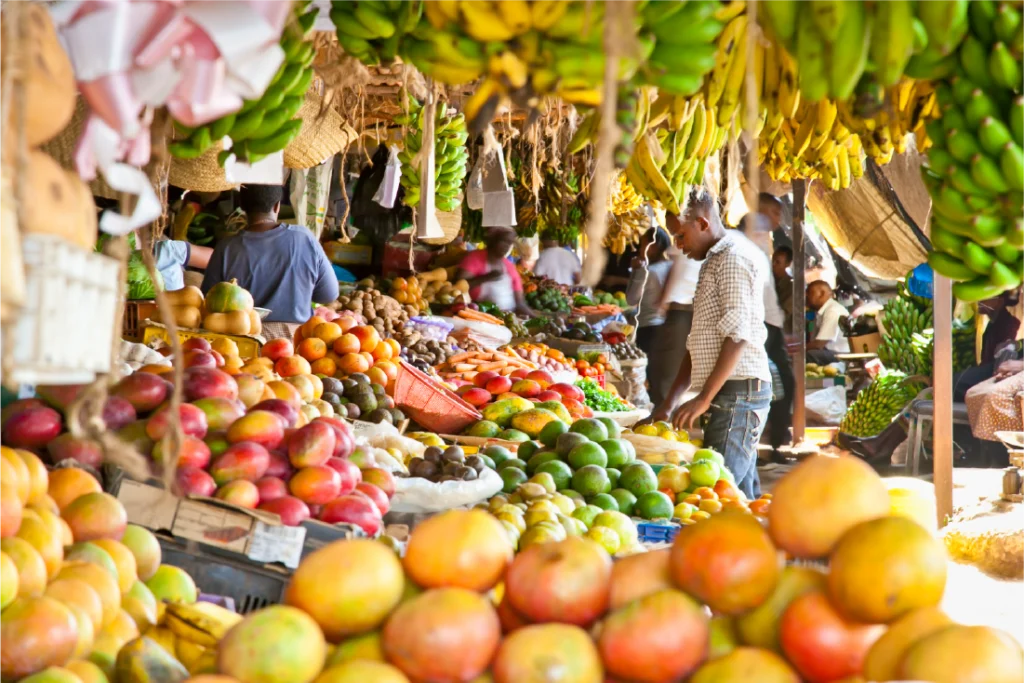Wangige Market: A Vibrant Hub of Local Trade and Culture

Nestled in the outskirts of Nairobi, Wangige Market stands as a bustling epicenter of commerce and community life. Known for its vibrant atmosphere and diverse offerings, this open-air market plays a critical role in the daily lives of local residents and traders alike. From fresh produce and household goods to clothing and artisanal crafts, Wangige Market provides a wide range of products that cater to the needs of the surrounding population. The market not only serves as a vital economic hub where small-scale farmers and entrepreneurs can sell their goods, but it also fosters social interactions and cultural exchange, making it an integral part of the community’s identity and livelihood.
A Melting Pot of Local Produce and Goods
Wangige Market is renowned for its wide array of fresh produce, ranging from fruits and vegetables to grains and spices. Farmers from nearby rural areas converge here every day, bringing freshly harvested vegetables such as kale, sukuma wiki, tomatoes, and onions. The market serves as a vital link between rural farmers and the urban population, ensuring fresh and affordable food reaches consumers in the surrounding neighborhoods.
Besides fresh produce, Wangige Market also features stalls selling traditional herbs, livestock products, household goods, clothes, and electronics. This diversity makes the market a one-stop shopping destination catering to various needs under the open sky.
Economic Lifeline for Small-Scale Traders
Wangige Market much more than just a place to buy and sell goods; it is an economic lifeline for countless small-scale traders and entrepreneurs. Many vendors operate family-run stalls, relying on daily sales to support their households. The market fosters a vibrant informal economy where bargaining is common, and relationships between buyers and sellers often grow into lasting friendships.
Women, in particular, dominate the trading scene at Wangige, showcasing their entrepreneurial spirit and contributing significantly to the local economy. Small traders here benefit from the market’s strategic location along well-traveled routes, attracting customers from neighboring estates and beyond.
A Cultural Crossroads
The market is also a melting pot of Kenyan culture and traditions. It brings together people from different ethnic backgrounds, fostering social interaction and cultural exchange. Visitors to Wangige Market will experience the hustle and bustle accompanied by the lively calls of vendors, traditional music, and the colorful display of local crafts and clothing.
Festivals and special occasions see the market transform into a hub for cultural expression, where traditional foods and artisanal products take center stage. This cultural richness adds a unique flavor to the shopping experience, drawing in both locals and tourists curious about Kenya’s diverse heritage.
Challenges
Despite its vibrancy, Wangige Market faces challenges common to many informal markets in Kenya. Issues such as inadequate sanitation, limited infrastructure, and congestion during peak hours sometimes hamper smooth operations. Efforts from local authorities, community groups, and traders are ongoing to address these challenges and improve market facilities.
Programs aimed at empowerment through training on hygiene, sustainable farming, and business management are helping vendors enhance their livelihoods. There is also growing interest in modernizing aspects of the market while preserving its traditional charm.
Conclusion
Wangige Market remains a cornerstone of local trade and culture in Nairobi’s periphery. Its dynamic blend of commerce, tradition, and community spirit makes it much more than a marketplace – it is a vital institution that sustains the livelihoods and cultural identity of many Kenyans. For anyone seeking an authentic slice of Nairobi’s vibrant local life, a visit to Wangige Market promises an enriching experience full of sights, sounds, and flavors that celebrate Kenya’s rich heritage.
